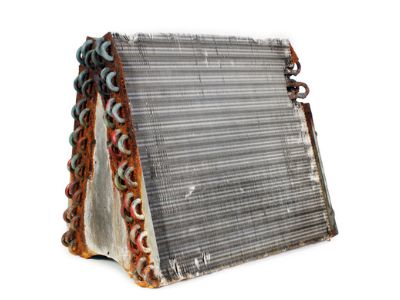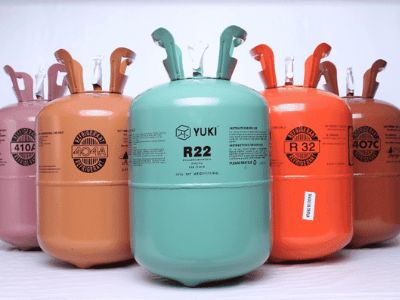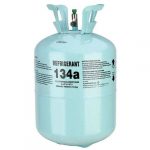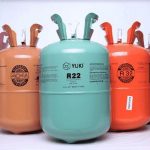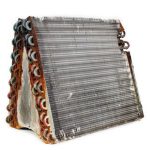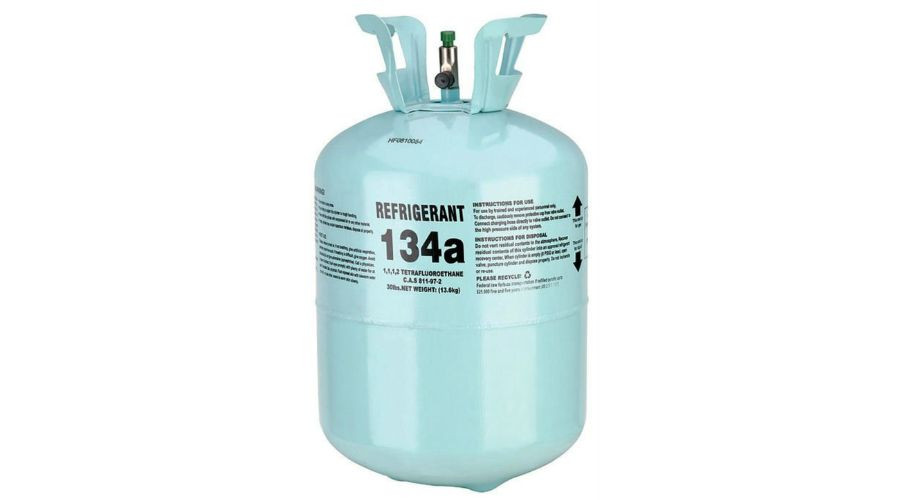
What Are Refrigerants?
Refrigerants help the HVAC system produce cool air. These substances are usually liquid and are installed in every air conditioning system upon purchase. During an HVAC system’s 15-year lifespan, a homeowner should never have to consider refrigerants. Unless, of course, there’s a problem.
Leaks can cause refrigerants to escape the HVAC system, affecting how the entire unit works. One can learn how to check their system’s refrigerant levels by consulting the device’s user manual. Of course, they can also consult an HVAC professional.
What Refrigerants Does an HVAC System Use?
There are four main types of refrigerants, each with its pros and cons. There are many laws against chlorofluorocarbons (CFOs) because they’re bad for the environment. Most countries stopped using CFOs in the early 1990s. However, they’re still present in older systems.
If one has an HVAC system produced before 2010, it uses R22, also known as freon. Like CFOs, freon is extremely bad for the environment––and it’s illegal to use these substances in HVAC systems. If one’s system uses freon, they should consult a professional for more information. They can assess the unit and determine what refrigerant could meet one’s needs.
It’s important to note that refrigerants do not mix. Mixing refrigerants can severely damage the system and even pose various safety hazards.
What Causes Refrigerant Leaks? Are They Fixable? 
- Wear-and-tear. The U.S. Department of Energy notes that an HVAC unit can last up to 20 years. Once it hits that point, the damage is inevitable. Worn or rusted valves, for example, can cause refrigerant leaks.
- Pinhole leaks. Refrigerants generally travel through copper tubes. However, corrosion can cause tiny leaks that allow refrigerants to escape.
- Corrosion. Some chemicals, like formaldehyde, can build up inside an HVAC system’s tubing. Over time, these chemicals can eat away at these tubes, allowing refrigerants to escape.
One cannot fix a refrigerant leak with duct tape or another adhesive. Instead, they should consult a trained professional who can determine the problem’s cause and render appropriate repairs.
When Should Homeowners Contact HVAC Professionals? 
- Hissing noises
- Gurgling sounds
- High utility bills
- Poor AC performance
- Indoor humidity
- Frozen coils
The sooner a homeowner calls a professional, the sooner they can resolve the issue. After a comprehensive inspection, an HVAC professional may:
- Seal the leak. A professional can locate the leak and may seal it using plumbing putty or another application.
- Replace the evaporator coil. Sometimes, it’s more efficient to replace a leaking coil than it is to plug the leak.
- Remove corrosive chemicals. A professional may remove any substances building up in the system and compromise its integrity.
A refrigerant leak is not something that will go away on its own. It will only worsen until the air conditioner stops working altogether, wasting money and energy.
About Albritton Service Co
Albritton Service Co faithfully serves Ruston, LA, and the surrounding community. These professionals offer both electrical and HVAC repairs to homeowners in need. Interested parties can call today to learn more.
Distribution Links +
- htv10.tv
- southeast.newschannelnebraska.com
- rivercountry.newschannelnebraska.com
- wicz.com
- rfdtv.com
- snntv.com
- central.newschannelnebraska.com
- metro.newschannelnebraska.com
- midplains.newschannelnebraska.com
- northeast.newschannelnebraska.com
- plattevalley.newschannelnebraska.com
- panhandle.newschannelnebraska.com
- wpgxfox28.com
- lifestyle.mykmlk.com
- wtnzfox43.com
- lifestyle.3wzfm.com
- lifestyle.southernsportstoday.com
- lifestyle.thepodcastpark.com
- lifestyle.680thefan.com
- lifestyle.xtra1063.com
- lifestyle.953hlf.com
- lifestyle.rewind1019.com
- lifestyle.us983.com
- lifestyle.countrylegends1059.com
- lifestyle.967wshv.com
- lifestyle.1045thedan.com
- yournewsnet.com
- michigan.yournewsnet.com
- midwest.yournewsnet.com
- northeast.yournewsnet.com
- southeast.yournewsnet.com
- southwest.yournewsnet.com
- lifestyle.earl983.com
- west.yournewsnet.com
- lifestyle.maverick1023.com
- lifestyle.magic979wtrg.com
- lifestyle.1077lakefm.com

